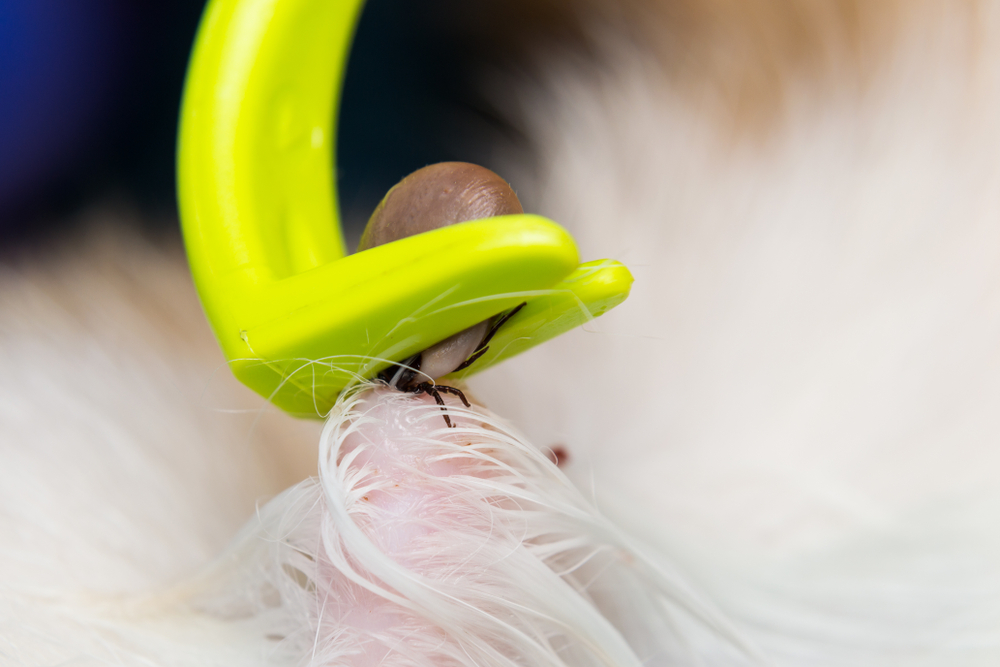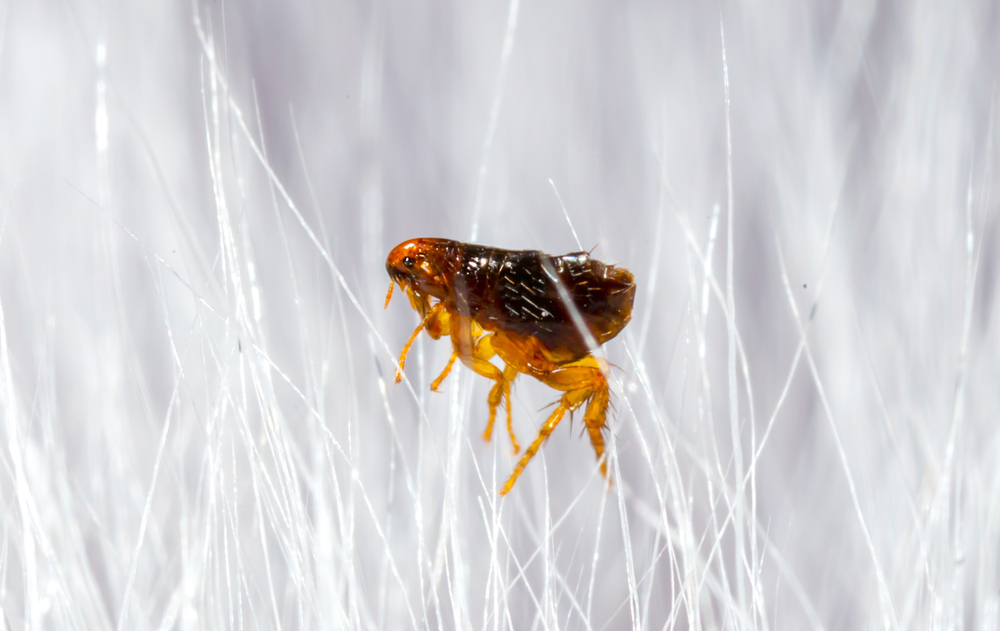Fleas and ticks are a nuisance for pets who like to spend time enjoying the outdoors, and they also pose serious health risks to our furry pals. Our Driftwood Animal Hospital team members are experts at addressing pet parasites, which thrive in Florida’s hot and humid climate. We answer common pet owner questions to help you understand the dangers associated with fleas and ticks, and we offer effective preventive strategies to help pets live safe, pest-free lives.
Question: What are fleas and ticks?
Answer: Fleas and ticks are external parasites that feed on your pet’s blood. Fleas are tiny, fast-moving, winged insects that live, breed, and feed on your pet, and then drop eggs into their fur and the surrounding environment, such as pet bedding, carpeting, or cracks between floorboards. Ticks are free-living, but hop on pets to feed on their blood for several days. Ticks are more easily spotted than fleas, although they can be small during their larval (i.e., nymph) stage.
Q: Why are fleas harmful to pets?
A: Fleas are notorious for causing allergies that lead to flea allergy dermatitis (FAD) and characteristic itching and hair loss in pets. Fleas can also serve as intermediate hosts for a specific tapeworm species, causing tapeworm infections in pets who swallow infected fleas. Some fleas carry serious diseases, such as plague or cat scratch fever.
Q: Why are ticks harmful to pets?
A: Ticks are well-known for their disease-transmitting abilities and can cause Lyme disease, which is common in areas where deer ticks thrive, in exposed dogs. Other tick-borne diseases include anaplasmosis, ehrlichiosis, and Rocky Mountain spotted fever. While disease distribution varies regionally, most tick-borne diseases cause similar signs, including fevers, swollen lymph nodes, lethargy, blood disorders, and eye inflammation. Lyme disease often causes a shifting-leg lameness and can lead to kidney disease in chronic cases.
Q: How can I tell if my pet has fleas or ticks?
A: Ticks are typically visible on a pet, and you likely will see them crawling or after they’ve attached and become engorged with blood, although ticks can hide in a pet’s thick or long fur. Fleas are difficult to spot, because they are small and fast-moving, but you may find their droppings (i.e., flea dirt), which appear as brownish-red debris flecks, on your pet’s skin. Our team always checks for parasites during routine visits.
Q: How can I prevent fleas and ticks from biting my pet?
A: Prevention is the best strategy in the fight against parasites. Consider the following:
- Prevention products — These are the mainstay of parasite prevention and come in oral chewable pills, long-acting collars, or liquid spot-on formulations. You must follow product instructions closely and apply the products consistently year-round to prevent infestations.
- Routine checks — Check pets for fleas and ticks routinely, especially after outdoor adventures. Brush long-haired pets to find hidden invaders.
- Avoidance — Avoid letting pets run through wooded areas, tall grass, or areas frequented by wildlife. Reduce debris in your yard that could harbor parasites or parasite-attracting rodents.
Q: Will a home remedy prevent fleas and ticks on my pet?
A: Home remedies should always be approached with caution. Pet owners often use essential oils to repel pests, but these do not provide 100% protection and some can harm your pet. Natural insect repellents produced commercially and made specifically for pets are safe to use as needed, in addition to your standard prevention medications, most of which are designed to kill parasites but not repel them.
Q: What should I do if I find fleas or ticks on my pet?

A: If you discover fleas or ticks on your pet, consult our veterinary team for guidance. You can remove ticks at home by simply pulling them out with steady pressure or using a tick removal tool—ask our team to show you the safest method. If you see one flea on your pet, there likely are more, unless your pet is already on a preventive. In either case, our team can look for infestation evidence and help you decide if a different flea product would work better. We can also provide pointers on eradicating a home infestation, which can take several months and may require a professional exterminator.
Preventing fleas and ticks is easier and safer than treating them or trying to rid them from your home. Ask our Driftwood Animal Hospital team for product recommendations that work for your furry pal’s lifestyle, or call us to schedule a routine visit and parasite control consultation.








Leave A Comment